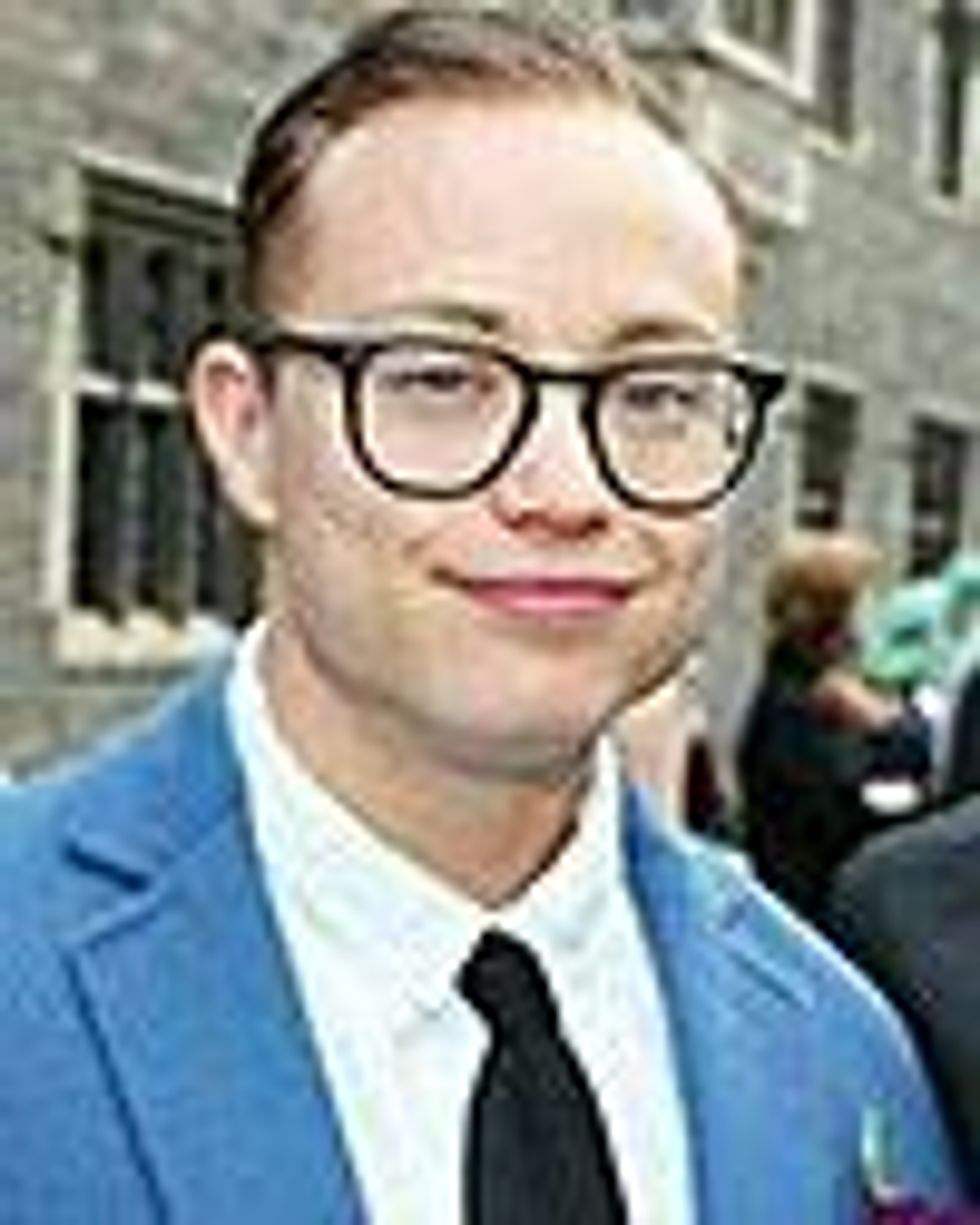After winning gold at Junior Nationals and representing my home province at numerous national competitions for both freestyle skiing and snowboarding during my teen years, I had dreams of joining the Canadian Olympic team. Like many other trans athletes, however, I became estramged from the sporting world around the same time that I began discovering my sexuality and gender identity. I withdrew from all sport and exercise, primarily as a response to the depression I developed after being rejected by a number of family members, friends, and teammates. Today, I am fortunate to have found my way back into sport, having become the first out transgender man to win a gold medal in powerlifting at the international Gay Games in 2014.
When I learned of the International Olympic Committee's expected policy change, which will allow trans athletes, to compete without surgery it was incredibly cathartic. I thought of Fallon Fox and Alaina Hardy -- trailblazers whose willingness to speak publicly about their experiences as professional athletes and trans women paved the way for this decision. I was also relieved for Olympic hopeful and trans male triathlete Chris Mosier, who feared he would not be able to compete in Rio in 2016 because of the IOC's former requirement for genital reassignment surgery.
I also thought about the Canadian Centre for Ethics in Sport's "Sport in Transition" report, which highlights that sporting principles should "celebrate difference as a core aspect of excellence." I was then reminded about the many trans people who avoid playing sports or being physically active due to discrimination for being different. And of my own circumstances which led me away from sport over a decade ago.
Sadly, the Trans Pulse Project study found that 44 percent of trans people don't go to the gym out of fear of being harassed. A Canadian study found that 49 percent of lesbian, gay, bisexual, and transgender high school students felt that their gym class is unsafe. If physical education and fitness programs were to include a formal trans inclusion policy and gender-neutral change spaces, trans people may feel more safe and able to engage in exercise.
Although the IOC's new trans guidelines are intended to affect elite-level athletes, recreational athletic organizations could improve significantly by recognizing gender diversity in sport. Making sport more welcoming to trans people is key to improving quality of life and overall health for our community. Participation in sport is linked to feeling community connectedness, and improving mental well-being and self-esteem. For a population that faces extreme stigmatization, inclusion in activities as banal as baseball can make all the difference.
Importantly, the IOC states that these guidelines ensure "that trans athletes are not excluded from the opportunity to participate in sporting competition."
Some local teams and sporting institutions have already begun implementing trans-inclusion policies, including the Canadian Collegiate Athletic Association and the Women's Flat Track Derby Association. But we need to see more of this in all levels of sport so that everyone has an equal chance to enjoy sport and athletics, regardless of gender identity -- particularly at the younger levels when youth have a chance to develop healthy physical activity habits that will help them achieve good long-term health.
 KINNON MACKINNON is an athlete, an academic, and an activist. He is currently a doctoral student in public health at the University of Toronto. In 2014 Kinnon became the first openly transgender man to win a gold medal in powerlifting at the Gay Games, held that year in Cleveland, and was named an LGBTQ Sports Hero by the INSPIRE Awards.
KINNON MACKINNON is an athlete, an academic, and an activist. He is currently a doctoral student in public health at the University of Toronto. In 2014 Kinnon became the first openly transgender man to win a gold medal in powerlifting at the Gay Games, held that year in Cleveland, and was named an LGBTQ Sports Hero by the INSPIRE Awards.


 KINNON MACKINNON is an athlete, an academic, and an activist. He is currently a doctoral student in public health at the University of Toronto. In 2014 Kinnon became the first openly transgender man to win a gold medal in powerlifting at the Gay Games, held that year in Cleveland, and was named an LGBTQ Sports Hero by the INSPIRE Awards.
KINNON MACKINNON is an athlete, an academic, and an activist. He is currently a doctoral student in public health at the University of Toronto. In 2014 Kinnon became the first openly transgender man to win a gold medal in powerlifting at the Gay Games, held that year in Cleveland, and was named an LGBTQ Sports Hero by the INSPIRE Awards.

































































Charlie Kirk DID say stoning gay people was the 'perfect law' — and these other heinous quotes